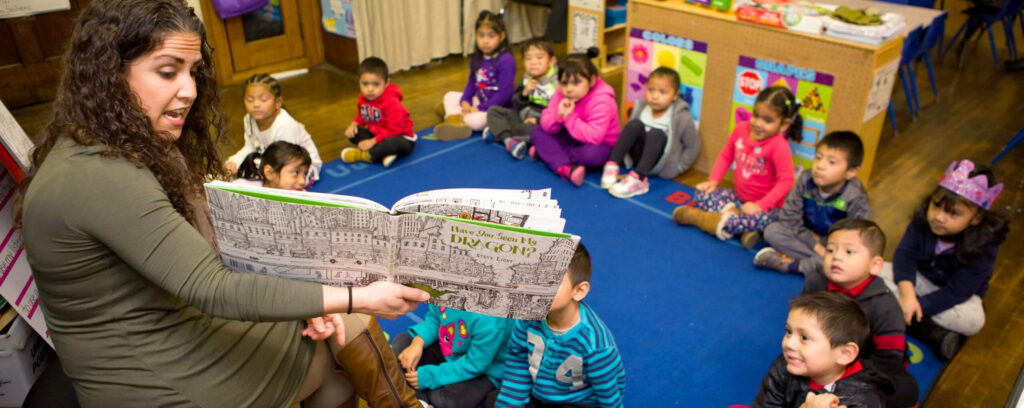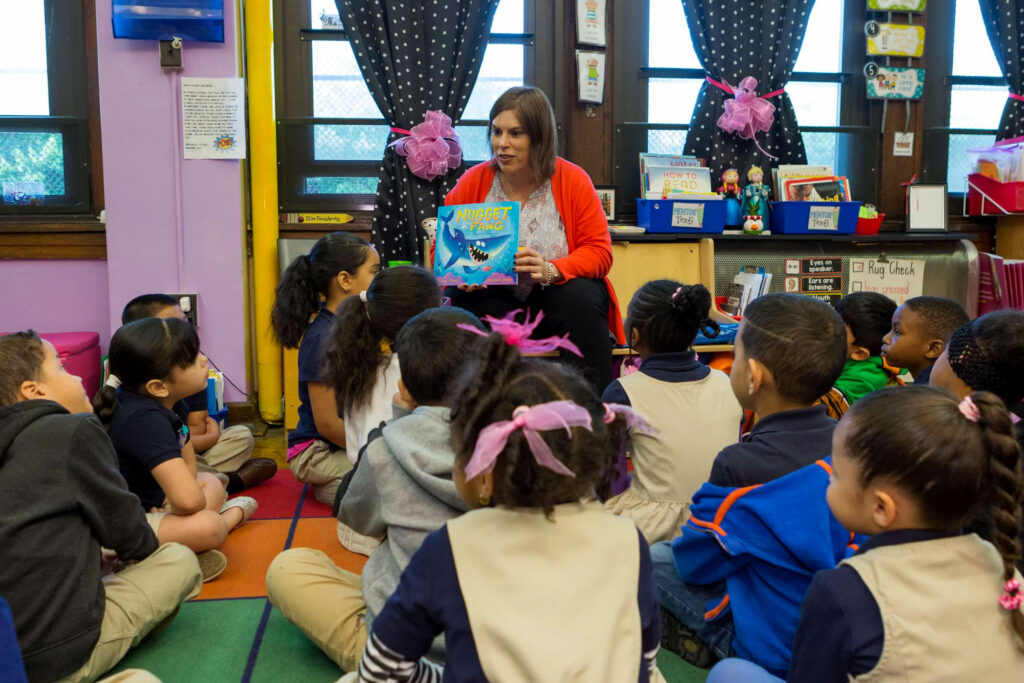


At the Children’s Literacy Initiative (CLI), we believe literacy is a transformative tool—a foundation for equity, opportunity, and lifelong success. Our recent webinar, Equitable Literacy Instruction: Ensuring the Science of Reading Works for All Children, brought together thought leaders, educators, and advocates to discuss how to bridge the gap between research and practice in literacy education.
Here, we summarize the critical takeaways from this important conversation.
1
Panelists like Xigrid Soto-Boykin and Dr. Diana Greene emphasized that literacy instruction is not just about academic success; it’s about ensuring every child is seen, valued, and given the tools to thrive. The panel explored the urgent need to address systemic inequities that disproportionately impact Black, Latinx, and multilingual learners.
|
Key Insight: Equity-driven literacy practices must go beyond a “deficit lens” to uplift every student’s unique strengths, cultural background, and linguistic identity. As Xigrid noted, “We must embrace linguistic diversity as a strength, not an obstacle.”
This aligns closely with the Science of Reading for Emergent Bilinguals framework, shared by Xigrid during the webinar. The framework underscores the integration of oral language development and structured literacy, emphasizing research-based practices for bilingual learners. |
2
Educators shared a recurring challenge: insufficient time and resources for professional development (PD) that aligns with their daily realities. Many expressed frustrations with theoretical training that doesn’t translate to actionable classroom strategies.
CLI addresses this gap through:
|
Key Insight: PD must be practical, ongoing, and aligned with educators’ needs to ensure real impact in classrooms. |

3
The Science of Reading has transformed how we approach literacy instruction, but panelists stressed the importance of balancing rigor with joy, relevance, and equity. Literacy is not just about decoding; it’s about fostering critical thinking, cultural connection, and love for learning.
CLI’s work exemplifies this balance by:
|
Key Insight Effective literacy instruction integrates evidence-based practices with culturally sustaining approaches to create joyful, inclusive learning experiences. |
4
A recurring theme during the webinar was the vulnerability in making literacy instruction overly prescriptive. Panelists emphasized that scripted teaching and assumptions of linguistic cohesion fail to address the realities of diverse classrooms.
The message was clear: effective teaching must honor the complexities of students’ lives and languages.
Xigrid Soto-Boykin shared that overly standardized approaches risk alienating students whose experiences and identities do not align with the “one-size-fits-all” model. Instead, educators must adopt flexible, culturally responsive practices that meet students where they are, allowing for individual growth and empowerment.
|
Key Insight Rigid instruction fails to serve the most vulnerable learners. Literacy instruction must be adaptable and responsive to the unique needs of every child. |

The insights from the webinar reaffirm CLI’s mission to create literacy environments where every child can thrive. Our approach includes:
|
Bilingual Education Support Empowering educators with strategies and resources to celebrate linguistic diversity. |
Customized Professional Development Tailored coaching and workshops to meet the specific needs of schools and districts. |
Practical Resources Tools like our Family Literacy Night Toolkit to strengthen home-school connections. |
|
Explore Our Resources Visit our Resources Page to access bilingual materials, culturally sustaining tools, and actionable guides to support your literacy goals. |
We invite you to partner with us in advancing equitable literacy instruction. Together, we can create classrooms where every child—regardless of background or language—has the opportunity to proudly say, “I can read.”
Schedule a Consultation to explore how CLI can support your educators and students.
Thank you for your commitment to this vital work. Together, we can ensure literacy for all.


Start the year strong with CLI's Healthy Kids series—featuring inspiring titles that celebrate health, promote well-being, and spark a love for literacy.

Explore CLI’s redesigned website, where 'Literacy to Liberation' comes to life. Featuring a mission-driven design, enhanced navigation, impact stories, and clear calls to action,[..]